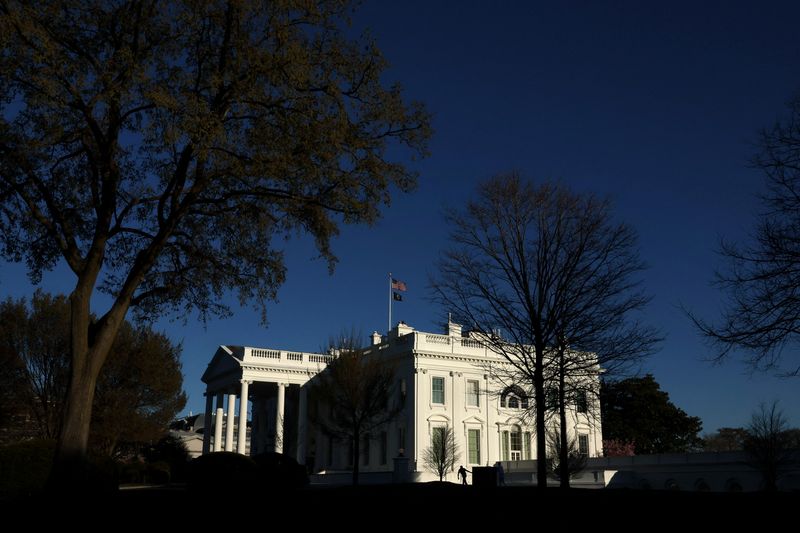
© Reuters. FILE PHOTO: A view of the White House in the late afternoon in Washington, U.S., March 8, 2023. REUTERS/Leah Millis
By Andrea Shalal
WASHINGTON (Reuters) – The White House on Wednesday expanded its war on junk fees to the rental housing market, announced a crackdown on price-fixing in food and agricultural markets, and unveiled draft merger guidelines as part of an ongoing push to aid U.S. consumers.
President Joe Biden, who has made attacks on corporate greed and power a centerpiece of his administration, will discuss the latest actions with Cabinet members at the fifth meeting of his Competition Council on Wednesday.
The White House explained the new measures in a series of factsheets as it marked the second anniversary of the Biden executive order that created the council and launched a government-wide attack on anti-competitive practices.
It said four decades of “misguided economic philosophy” had resulted in rising concentration in three-fourths of U.S. industries, costing the median U.S. household up to $5,000 a year in higher prices and lower wages.
Hannah Garden Monheit, the newly named director of Competition Council Policy at the National Economic Council, told Reuters the administration would “use all the tools that we have” to curb anti-competitive practices.
She said the new actions would build on successes in meatpacking, ocean shipping and consumer junk fees, while driving down inflation.
While the junk fee crackdown has found strong bipartisan and public support, industry has chafed at the increased oversight, accusing the Biden administration of “regulatory overreach.”
Morgan Harper, a former Consumer Financial Protection Bureau official, said Biden’s drive for more competition was focused on creating more opportunities for small firms and entrepreneurs.
“We don’t really have a competitive marketplace unless we have strong government enforcement,” Harper, now at the American Economic Liberties Project, said. “Concentration issues all over the economy are hurting workers, they’re hurting small businesses, and they’re hurting consumers.”
RENTAL HOUSING FEES
The White House said three of the largest rental housing platforms – Zillow, Apartments.com and AffordableHousing.com -had agreed to disclose total, upfront data on rental costs. These include application fees that can run to $100 or more per application, and “convenience fees” sometimes charged for paying rent online or disposing of trash.
A senior official said the move would not lower fees, per se, but increased transparency should cut them down by giving the tens of millions of renters who use them a chance to comparison-shop.
Biden has repeatedly called for federal agencies, Congress and private companies to address surprise fees that can jack up consumers’ cost by 20%. Three of the biggest airlines have already agreed to scrap fees for children to sit with parents.
Other actions announced Wednesday included draft merger guidelines that pave the way for tougher scrutiny of planned mergers by Big Tech companies like Amazon.com (NASDAQ:) and Alphabet (NASDAQ:)’s Google.
One senior official said the goal was to eliminate “various blind spots” that had contributed to consolidation, noting that the Federal Trade Commission had received over 5,000 comments as it was shaping the new guidelines.
The White House also announced moves by the Department of Agriculture, joined by 31 states and Washington, D.C., to target price fixing and other anticompetitive behavior in highly consolidated food and agriculture sectors.





